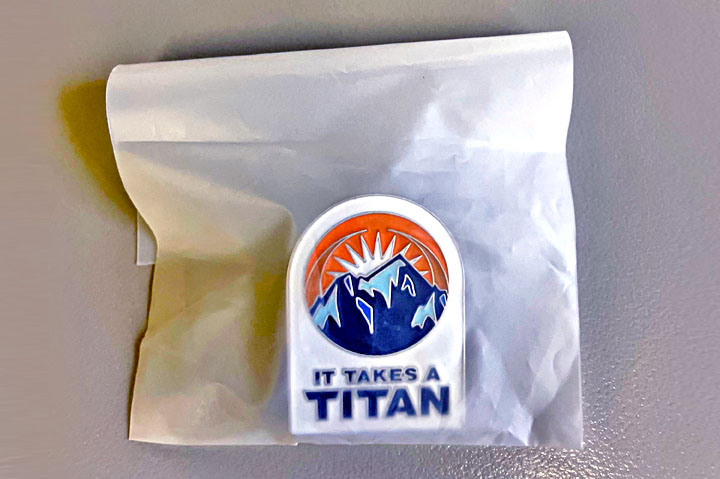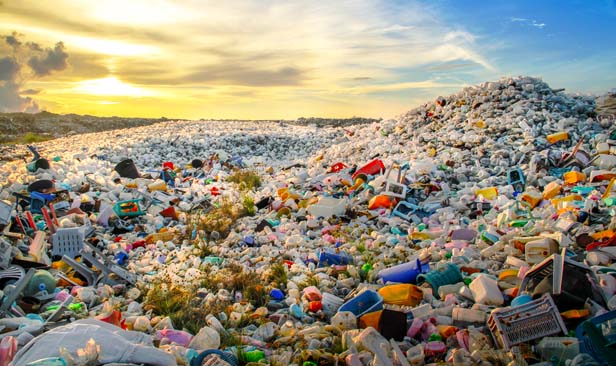Sustainability January 31, 2023
Emblematics Switches to Compostable Bags
The supplier says it’s phasing out traditional polybags to package its branded lapel pins, coins and keychains.
Emblematics (asi/52280) is making a change this year. The San Clemente, CA-based promotional products supplier says it’s in the beginning phase of eliminating traditional virgin polybags from its packaging, transitioning instead to compostable bags to package its branded lapel pins, coins and keychains.
Dan Arakawa, president of Emblematics, says his company has moved to about 10% of products being packaged in the compostable bags and as long as customers’ reaction to the switch is positive, the supplier will continue to increase that percentage by 10% progressively over time until 100% of the polybags it uses are compostable.
“It will help a lot of plastic from ending up in the landfill,” Arakawa added.

Emblematics is transitioning to compostable bags to package its branded lapel pins, coins and keychains.
Plastic, particularly of the single-use variety, has been one of the most high-profile targets of the sustainability movement and public ire – with many pointing to the high environmental cost of the substance primarily sourced from fossil fuels, which can take hundreds of years (if ever) to biodegrade. Less than 6% of plastic waste generated in the United States was recycled in 2021, according to a report. The vast majority ended up in landfills, and about 10% was incinerated.
Compostable products aren’t an automatic fix to this issue, especially if there’s not a corresponding push toward consumer education. A compostable bag that ends up in a landfill, for example, would not biodegrade any quicker than its virgin poly counterpart. It requires moisture and heat to decompose, conditions which don’t exist in landfills. The compostable bags that Emblematics is using can be composted at home, Arakawa says.
“When buried in soil, they start to break down in three months and are completely decomposed within six months,” he adds. “Or they can be composted industrially for much faster decomposing.”
Emblematics plans to include messaging on the new packaging to explain that they’re compostable so that end-users understand how to properly dispose of them.
The supplier debuted the new bags at industry trade shows in January. “The people who were specifically interested in eco-friendly packaging were very interested,” Arakawa says. The average distributor had a more neutral response: “They didn’t mind that it was used, but weren’t overly excited.”
This isn’t the first step toward sustainability that Emblematics has taken. The supplier uses solar energy to power its offices and recycles thousands of pounds of metal overruns – brass, zinc alloy and steel – each year. “We’re always trying to do something that would help out,” Arakawa says.
Emblematics is part of a larger trend rethinking plastic packaging. Fashion for Good, a global platform that supports innovation in the fashion industry, recently launched the Home-Compostable Polybag Project, a six-month pilot program in partnership with C&A and Levi Strauss & Co. The retailers will test home-compostable polybags that include bio-based material from TIPA Corp. and Greenhope in their supply chain as a substitute to conventional plastic polybags. The challenges to scaling home-compostable bags include functionality, impact, cost and infrastructure, which Fashion for Good will assess over the course of the project.
Jeffrey Hogue, chief sustainability officer at Levi, called the project “an exciting opportunity to pilot a solution for an e-commerce element our customer is all too familiar with – the polybag.” He adds: “This pilot not only moves us toward achieving our goal of eliminating single-use plastic in consumer-facing packaging by 2030, it also puts into practice the industry collaboration required to solve these ubiquitous challenges in hopes of reducing harmful elements within the apparel supply chain.”
By the Numbers

180 billion: the estimated number of polybags produced each year to store, transport and protect apparel and footwear.
(Source: Fashion for Good)
Less than 6% of plastic waste gets recycled in the U.S. each year. The rest goes to landfills, gets incinerated or ends up polluting oceans and other waterways.
(Source: Beyond Plastics)
1,000 years: the amount of time it takes a plastic bag to degrade in a landfill.
(Source: Center for Biological Diversity)
6 months: The approximate amount of time a home-compostable bag needs to break down completely after being buried in soil.

Promo for the Planet is your destination for the latest news, biggest trends and best ideas to help build a more sustainable and socially-responsible industry.
